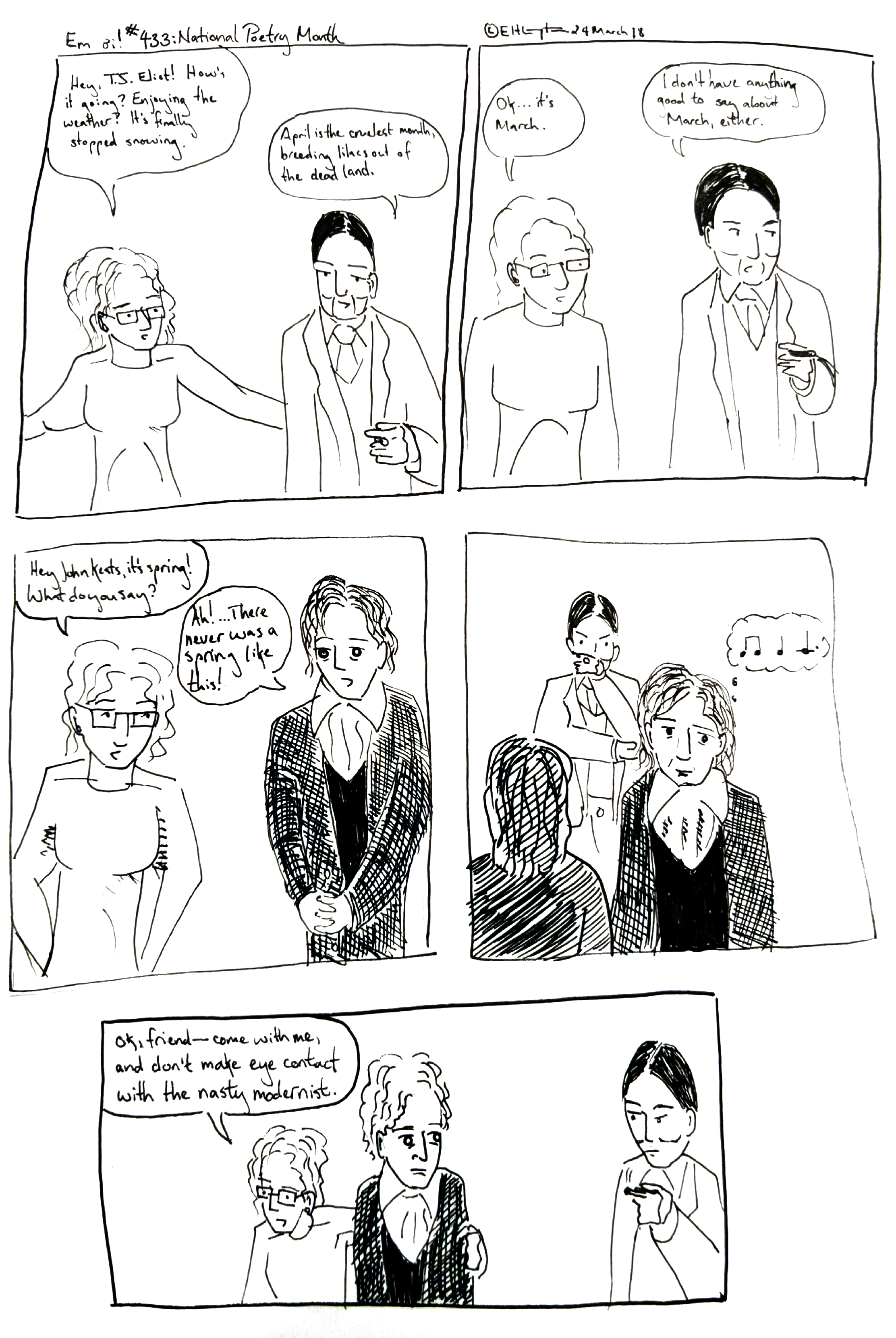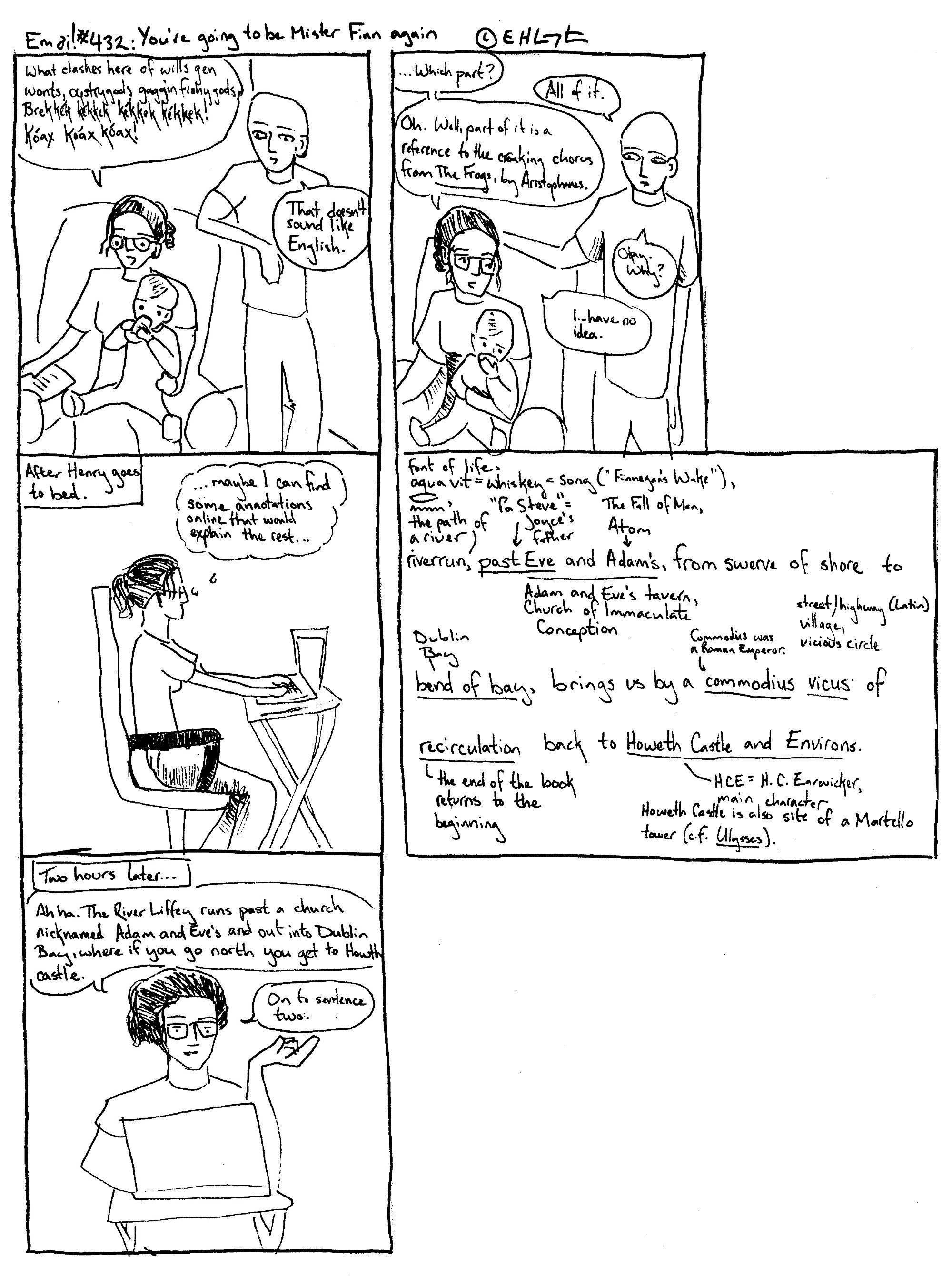I don’t usually take any swings at my own artwork, because if I did I’d never get to the rest of my commentary, but I do kind of feel like I didn’t do too much justice to either poet here. In reality, John Keats had a lovely romantic look to him, and TS Eliot looked a bit like Angry Thin Stephen Fry.
Eliot’s line is from “The Waste Land,” of course. Keats’s line is actually from a poem called “To John Keats, Poet, at Spring Time” by Countee Cullen. For various reasons, I reread it and the poem “Oatmeal” by Galway Kinnel every spring. Both poems are about Keats, but a lot of Keats’s writing was not about things like spring, which seems like too tame a season for him, but about this wild, fantastic nature that is lush and verdant and just a little bit dangerous. His writing is for me I guess evocative of the paintings of Henri Rousseau. Which is maybe appropriate, because both were critically derided during their lives and then recognized as geniuses after their deaths.
On the other hand, Eliot is very intellectual and clever–I was saying to B the other day, his poem “The Love Song of J. Alfred Prufrock” continues to have some of my favorite lines in English poetry in it, although some of the rhymes are kind of (probably intentionally) trite. “The Waste Land” begins with this line quoted above about “April is the cruelest month, breeding / Lilacs out of the dead land…” Which at first glance, you wonder–what’s he talking about? It’s actually a rather Buddhist sentiment, this idea that there is cruelty in rebirth–in the West, especially in eschatological religions like Christianity, the idea of life continuing after death is greeted as a positive. They look forward to the afterlife as a sort of perfection of life as well as an extension. In Buddhism, the cycle of death and rebirth (samsara) is seen as a negative thing, since it represents the continuation of suffering. While there are some heavens available to the virtuous, and you can even be reincarnated as a deity, the true goal of the religion (inasmuch as religion has goals) is to reach a state of nonexistence. So by this logic, the return (reincarnation) of the lilacs after the winter (death) is cruel, because they will have to suffer again the following fall and eventually die.[1]
All of which is to say, there are things to recommend both of them as poets–I don’t want to sound like I’m selling anyone short. (Although OKAY so did Eliot get his introduction to Buddhism from Ezra Pound, who was kind of an Orientalist? But was anyone in the West of that era NOT an Orientalist? HM. And I’ve always kind of suspected Eliot would be kind of a jerk if you met him at a party, where at least it would be fun to go bird watching with Keats or something like that.) Anyway, go read “On First Looking into Chapman’s Homer.” And then feel a little sad that you didn’t write it. And then feel happy that you got to read it.
We’ll file this under PN1077 L86 2018, for Literature (General)–Poetry–Relations to, and treatment of, special subjects–Relation to philosophy, ethics, religion, myth, etc. Religion and theology of the poets.
Notes
[1] I don’t know if this is an “official” interpretation of this line/the poem. Just something that struck me. It’s probably best not to cite me/this in your English paper.


